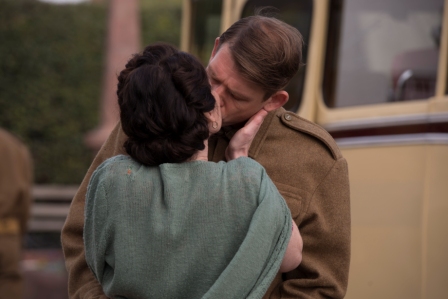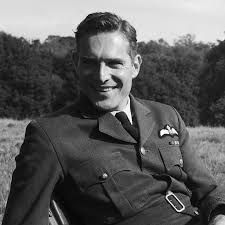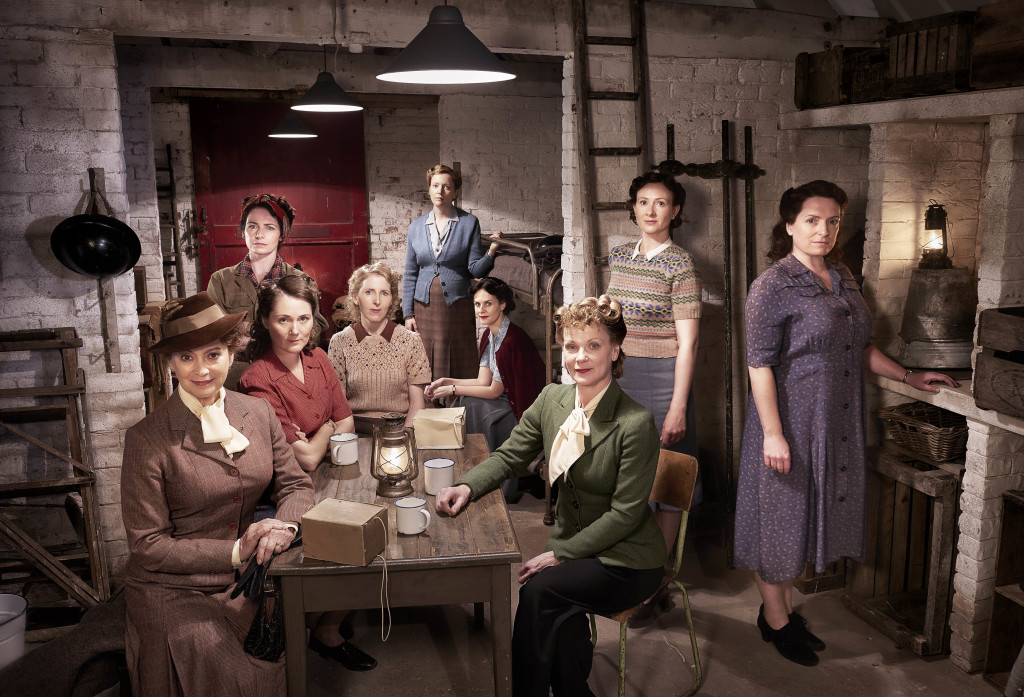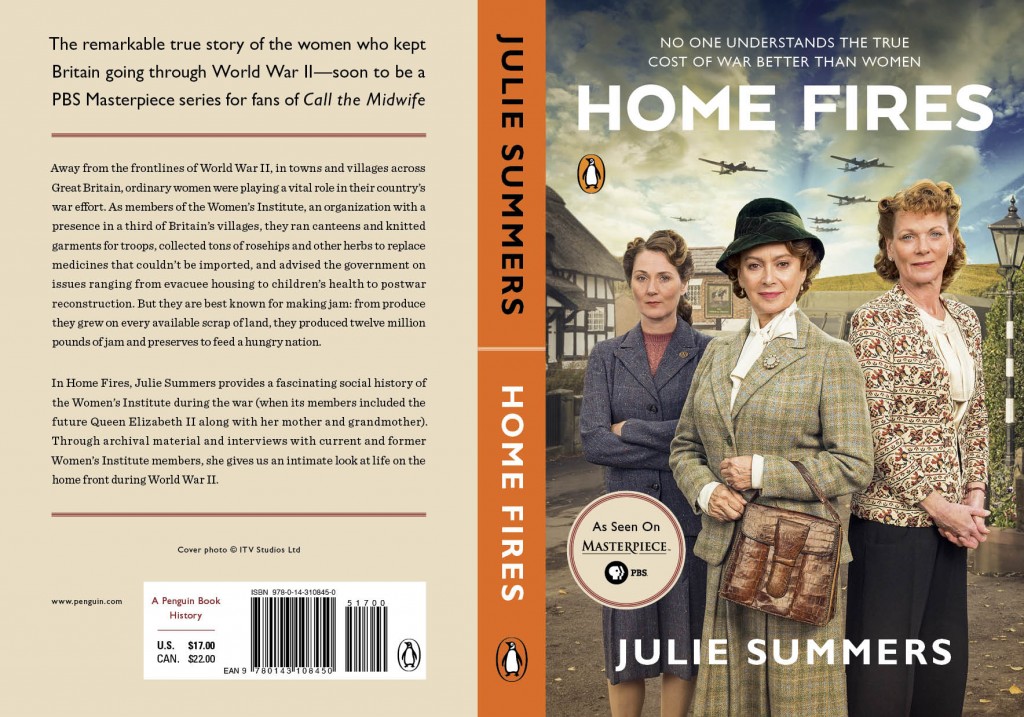‘If you put men and women together in close proximity in a danger shared, a mutual attraction is not only the inevitable result, it is what we should expect, and we should be very surprised and perturbed from a national point of view if it wasn’t.’ Thus wrote the English novelist, Barbara Cartland in 1945. As a welfare officer for the women’s services during the Second World War she was warm, generous and young people responded to her: ‘No one has ever minded when I have talked to them, and I’ve been both personal and intrusive. Being a novelist helps. I don’t know why, but people always want to confide in novelists, and the other thing which I believe makes everything alright is the fact that I am sincere. I do believe what I say.’ There were those in society who judged young people who got into trouble and condemned them but Cartland thought that was unfair and wrong. They were young, in love, in danger and in a hurry.
From today’s perspective it is difficult to imagine or understand the stigma caused by extramarital affairs or illegitimate children. For both men and women during the war there was a sense that living for today was fine because tomorrow you might die and this spilled over into behaviour which to some seemed reprehensible but which to others was inevitable and not even particularly surprising. ‘War Aphrodisia’ was traditionally ascribed to men in battle and was a well-recognised condition. In total war, as the Second World War undoubtedly was for Britain and mainland Europe, a hedonistic impulse reached many other segments of society. Later in the war the American GIs turned many heads and over 60,000 GI brides made their way to the New World in the immediate aftermath of the Second War. But that is all in the future.
The emancipation of women in Britain after the First World War had led, briefly, to a more liberated attitude towards fashion and behaviour. One commentator wrote: ‘Women bobbed their hair, donned short skirts, smoked in public and wore the heavy makeup which had formerly been the attribute of the harlot.’ The seeds of emancipation had been sown and the flame was fanned hardest in the USA where the combination of a buoyant stock market, bootleg gin and the racy novels of F. Scott Fitzgerald fuelled the frenetic pace of the social revolution.

Hollywood played its part, producing erotic films for a mass audience and elevating the leading stars to almost legendary status. Audiences flocked to films such as Alimony (1917), which promised ‘brilliant men, beautiful jazz babies, champagne baths, midnight revels, petting parties in the purple dawn, all ending in one terrifying climax that makes you gasp.’ The Great Depression put a stop to much of this and divorce rates in Britain plunged along with the stock market, reaching a low in 1933, down 40% from the 1928 level. The number of weddings also fell.
The circumstances of total war changed both attitudes and opportunities: ‘We were not really immoral, there was a war on,’ explained one British housewife. The ‘what the heck I could be dead tomorrow’ attitude of some of the fighter pilots, for example, brought many couples together and hastily arranged marriages, with often only forty-eight hours to spend together, were not uncommon. Few couples could consider what would happen after the war, when life might return to normal. They lived for that day and perhaps the next. ‘They were loved and beloved, and by this stage in the war love was about the only thing left unrationed.’

As we dig deeper into the fourth episode of HOME FIRES, war aphrodisia has reached Great Paxford. Electric tensions spark and shock around the village in the ferment of high drama. Pat’s nascent relationship with Marek has caused gasps and quickening heartbeats not just for careful observers like Erica, but for the rest of us watching on, agonising over her every move, desperate for her to duck and dive to avoid the eagle eye of Bob. How can she be so brave as to carry on her relationship with Marek while her deeply troubled husband is trying to exert his influence over her?
A contemporary description from a Manchester housewife in 1944 might throw some light on this: ‘There was nothing cheap about our affair, and if Rick had my body, my heart was with my husband and somehow I didn’t feel that I was doing anything wrong.’
Other relationships stop and start. Emotions that would normally have been ignored or suppressed, rise to the surface with a juvenile and intoxicating urgency. Some women find themselves almost out of their depth and exert a rigorous check on their emotions. Thanks to an intervention by Joyce Cameron in the last episode, Sarah Collingbourne is brought to an abrupt halt in her dalliance with the delightful, handsome and oh-so-eligible Wing Commander from RAF Tabley Wood.
But what of Miss Fenchurch? She might have danced with him at the Czech Camp but is there a chance of something in the future? Is Laura Campbell’s reputation going to blot out the early signs of love with Tom, the handsome young pilot who nobly stands up to the prissy but not-above-buying-black market-butter, Mrs Talbot? This fetid atmosphere of possibility belongs, of course, in a 9pm drama in 2016, but it accurately reflects the intoxicating atmosphere of the summer of 1940 when no-one knew what might happen next. The Second World War had entered a phase of unprecedented high stakes and it is not surprising that people reacted to it by questioning their tomorrow.
I am constantly excited and delighted by Simon Block’s brilliantly observed scripts. He has succeeded in chiming with the changing times. The pace of this series increases as the pace of the war did too. We never quite know what turn is to come next but when it comes it is both thrilling and fitting. Robert Quinn’s outstanding directing never lets us rest for a minute, yet it is not hurried. We are on the edge of our seats, as the country was in 1940. Home Fires is an all-round production with an exceptional cast, a superb production team and an energetic editorial and post-production set up that weaves the magic together as Samuel Sims’ music sprinkles the icing on the cake. Enjoy Sunday 23 April. It is a mesmerising episode.
The first section of this blog appeared in the USA in October 2015 and is an abridged version of a chapter in Stranger in the House, entitled Sex and Love in Times of War.









